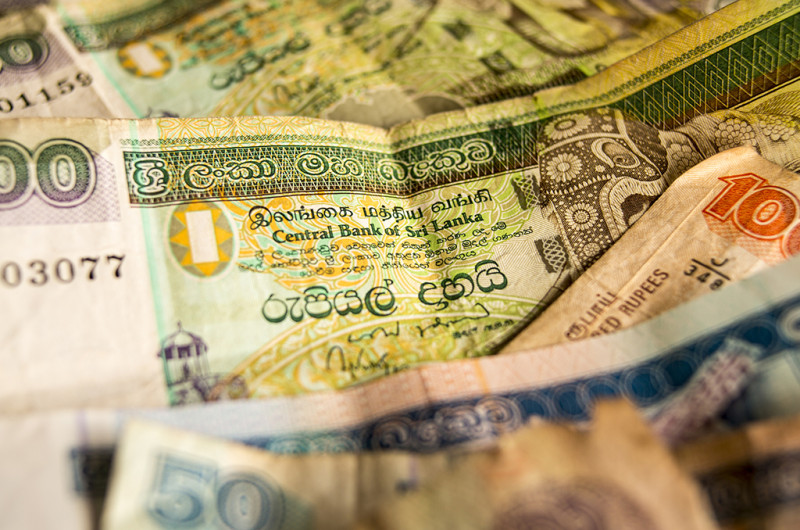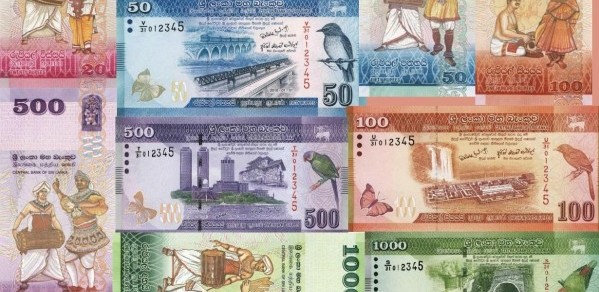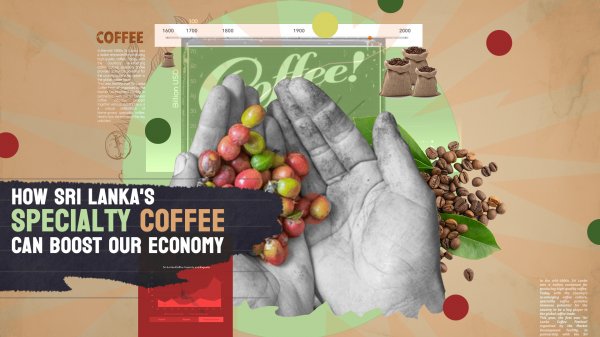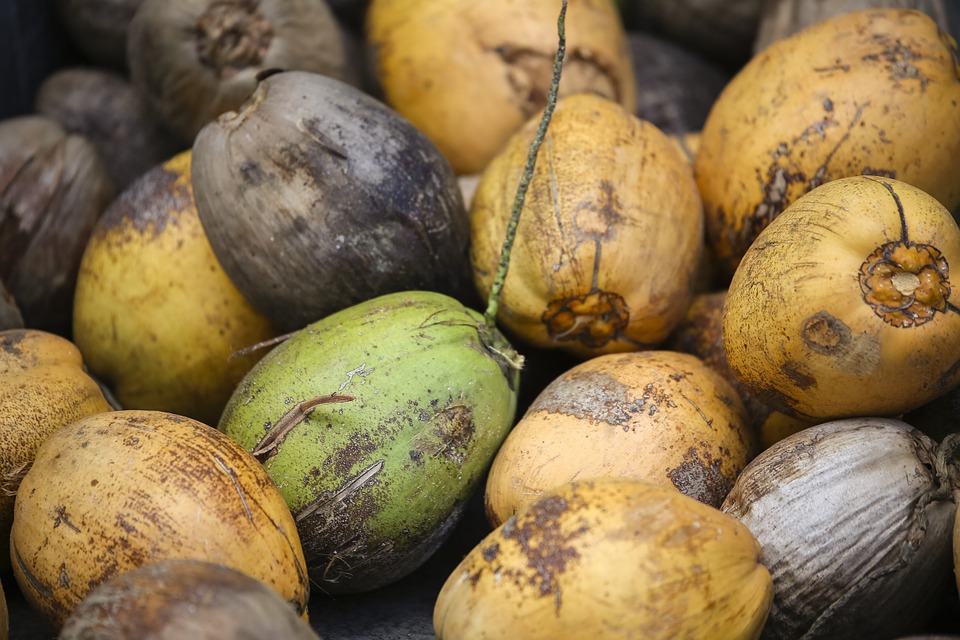
Coconuts have been given a new life. Despite many years of bad press as an unhealthy food, which saw an entire generation of misinformed curry-lovers blame coconut oil and milk for their weight gain, coconuts have reemerged as a superfood. Endorsed by celebrities and constantly featured on health food blogs, coconuts are now the preferred alternative to most fruit- and vegetable-based oils and butters, and a popular choice for vegans as a replacement to dairy-based milk.
We recently published an article that analysed the growing demand for coconut-based products in the United States and Europe, and how Sri Lanka can cash in on this trend. As it turns out, Sri Lanka has been working fast to keep up with coconut producing heavyweights, such as the Philippines and Thailand, over the last two years, as is evident in the growing number of Sri Lankan-made coconut-based products on the shelves of local stores. Whilst fresh coconut and coconut oil was always ‒ luckily ‒ ubiquitous in Sri Lanka, there was a serious dearth of other coconut by-products, or even extra virgin coconut oil. Today the choices are many, from coconut cream, butter, flavoured milk, chips, and spreads.
Competition With Southeast Asia
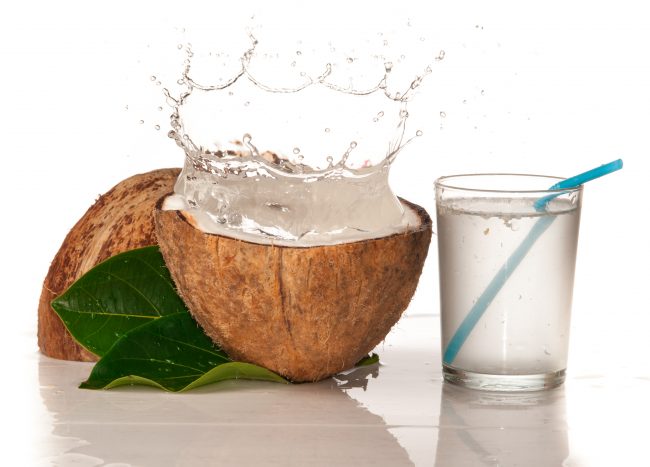
Last year witnessed a breakthrough for the Sri Lankan coconut industry. Image courtesy shutterstock
The year 2015 was a good year for coconuts in Sri Lanka, according to Niroshan Nadaraja, Head of Marketing at Cocomi Bio Organic, a recently-established subsidiary of Renuka Holdings. The island recorded the highest number of coconuts produced last year ‒ 2.5 billion nuts, of which around two billion were consumed locally. However, this number is still no match for the numbers recorded by the Philippines, the world’s largest producer of coconuts, which also continues to dominate the coconut export industry. The Philippines also has a more stable and well-connected trade network with the US, which is the world’s largest importer of coconut oil, according to Anusha Rajapakse, General Manager of Production at Sunfrost, also a new subsidiary of Hayleys PLC.
However, last year also witnessed a breakthrough for the Sri Lankan coconut industry. As the Philippines struggled with its supply chain of coconuts and failed to make export targets, countries like the US looked to Sri Lanka to fill this void. This was seen as an opportunity by many companies in the trade to generate interest in the Sri Lankan coconut and king coconut in the global market.
But this is no easy feat, says Rajapakse. Sri Lanka still cannot keep up with the price pressure imposed by the Philippines, whose coconuts are not only cheaper but produced in staggering amounts each year. The price of a Sri Lankan coconut is not stable, and just last year alone, witnessed a significant increase in December. The cost of production of coconuts also remains higher than that of the Philippines, despite ongoing efforts for expansion, both by the Government and private companies. These unpredictable figures make it difficult to negotiate with importers, he says.
Innovating On A Traditional Staple Food
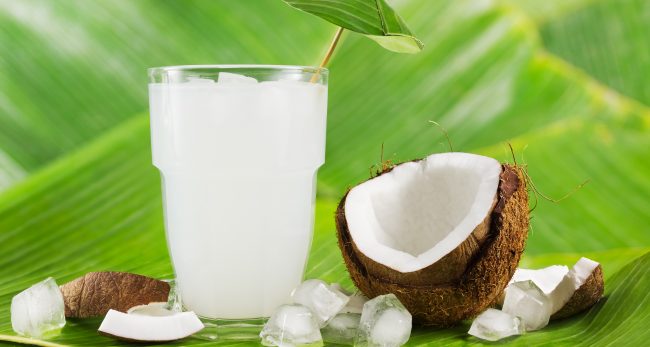
Re-marketing a traditional staple for the export market is proving to be a smart move. Image courtesy shutterstock
Renuka Holdings, a household name that was established in 1890, ventured into the coconut trade in 1985. Until 2013, the company had a limited portfolio, manufacturing coconut-based products largely to local consumers. However, in the last three years, Renuka has worked on innovating coconut-based products to be exported, in order to take advantage of this trend. Cocomi Bio Organic products come in significantly more attractive packaging to those under the more familiar Renuka brand ‒ a smart marketing move that targets more informed health and fitness enthusiasts, who are often influenced by what they read and see on blogs and social media, like Instagram. The products are also organic- and fairtrade-certified, another important deciding factor to socially-conscious consumers of the West (Renuka also manufactures non-organic or ‘conventional’ products for the local market, which are usually cheaper than their organic range.)
But despite their main ingredient being a national staple, which is deeply rooted in traditional cuisine, it has been the demand of those outside Sri Lanka that has driven companies like Renuka and Hayleys to innovate new products. Today, Cocomi offers ready-to-consume coconut oil, coconut butter, coconut spread, coconut water, and flavoured king coconut water, as well as coconut flour and coconut chips. Overall, the company exports to 50 countries worldwide, primarily to the US, Poland, and the Netherlands. Sunfrost, which currently only exports extra virgin coconut oil, sees its highest demands coming from the US and the Netherlands too, alongside the United Kingdom (UK), Korea, and Japan.
Nadaraja says that while the Sri Lankan coconut lacks the distinctive sweetness of those found in Southeast Asia, the mature coconut has a meatier texture, of which the oil is ideal for butter and spreads. He also says when it comes to awareness about the health benefits of coconut as an alternative to dairy or other vegetable-based products, especially for those with specific dietary requirements, countries in the West seemed to have figured this out much earlier. In Sri Lanka, however, coconut is rarely used outside everyday traditional cuisine or haircare, despite it being an affordable and easily available ingredient in the market.
Improving The Rural Economy
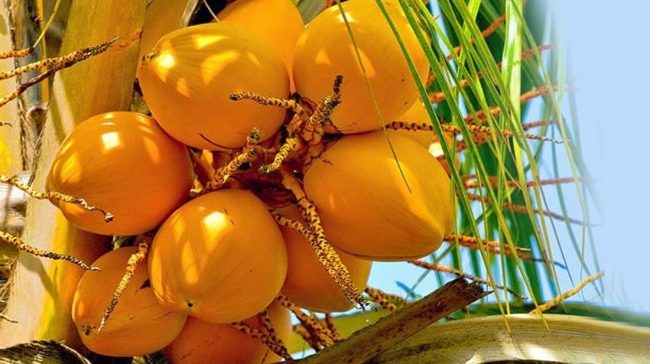
As promising as these coconut trends may seem, we also need to focus on improving the quality of cultivation. Image courtesy: wildlankaorganics.com
As private sector companies look to maximise on this trend, it is also important to consider how it is impacting local farmers, who have previously struggled with earning a sustainable income. Both Renuka and Hayleys have their own initiatives; the former works with around 7,000 farmers in the Giriulla region by providing them with the skills training to grow and harvest a superior product, and then buying back from them. This, Nadaraja claims, is their way of supporting the rural economy. Hayleys has also established a programme for organic coconut production, and negotiates with participating farmers for the manufacturing of their products.
The global food and beverages industry is not alone in its affection for the coconut. Virgin coconut oil is also a much sought-after ingredient in beauty and personal care products, from shampoos to body lotions to lip balms. In fact, many popular celebrities, and fashion and beauty magazines constantly promote using coconut directly on the body as a moisturiser, makeup remover, makeup base, and solution to frizzy hair.
When asked if the future of the industry looked promising, both parties ‒ Renuka and Hayleys ‒ agreed that there needs to be a larger focus on improving the area and quality of cultivation. Expansion for cultivation needs to increase in order to produce what is required to export in quantities that can compete with the Philippines and Thailand, especially now that the former has recovered from the supply issues of last year. Rajapakse also says there needs to be more training towards the management of cultivation lands, as farmers are still not guaranteed that they will harvest the expected yield.
Recently, President Barack Obama was photographed drinking out of a fresh coconut, albeit in Laos ‒ a sign that the media is not ready to withdraw its attention from the coconut. This should only mean good things for Sri Lanka, which for the last century or so, has been recognised globally for tea. With its distinctive flavour and texture, the Sri Lankan coconut, if branded well and developed with attention to quality by both the Government and the private sectors, has the potential to draw in its own fanbase and drive the economy. This is our time.
Featured image courtesy pixabay.com

